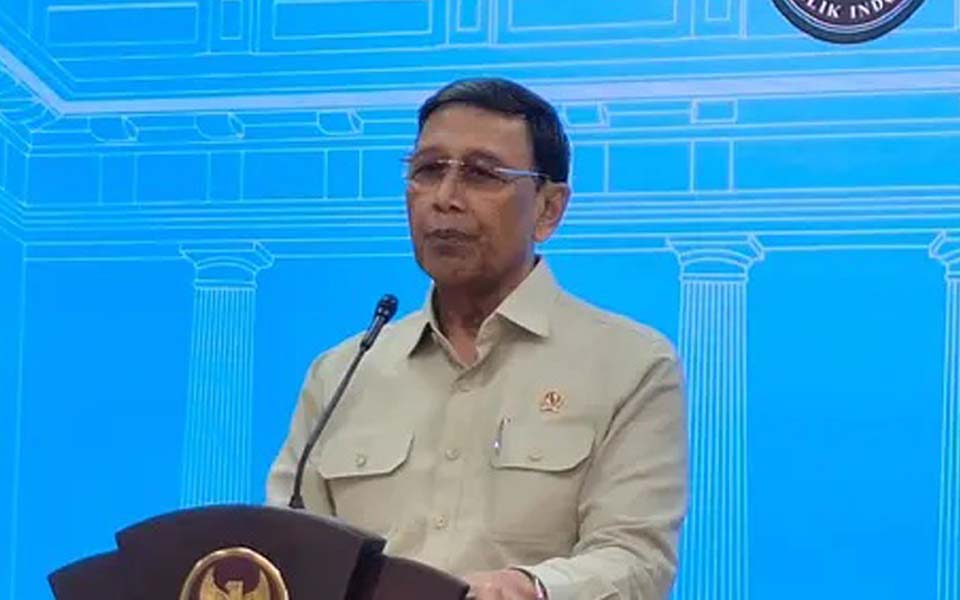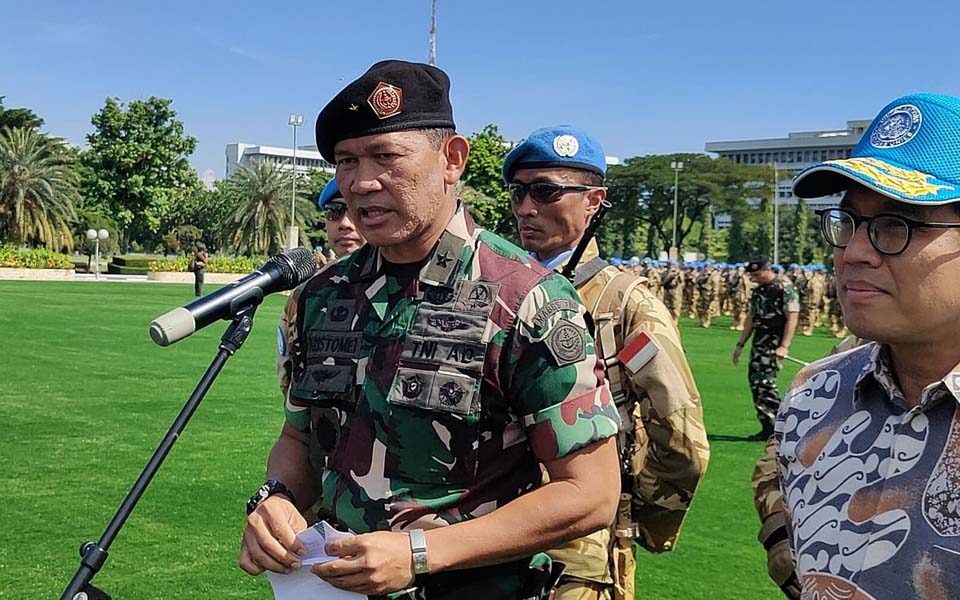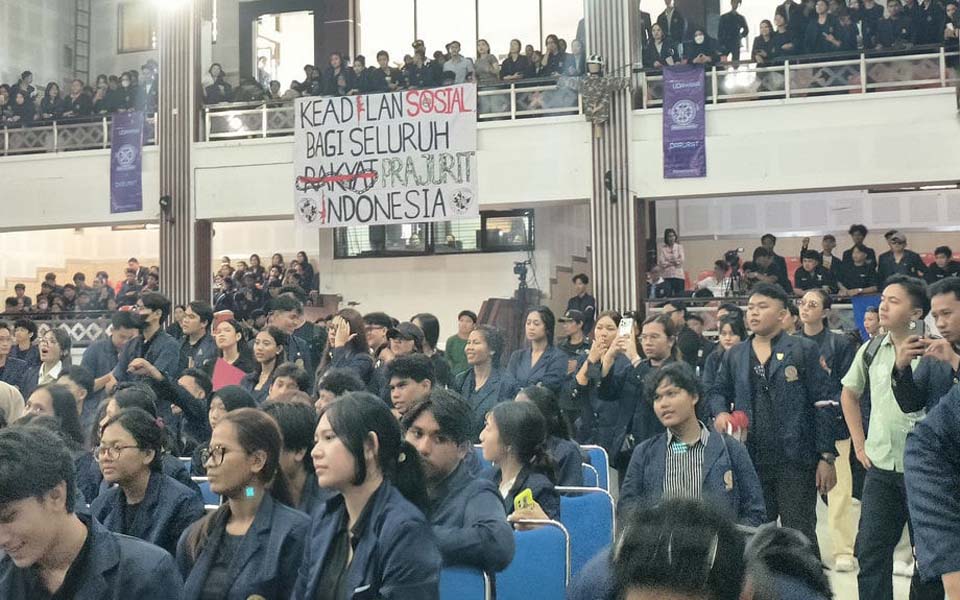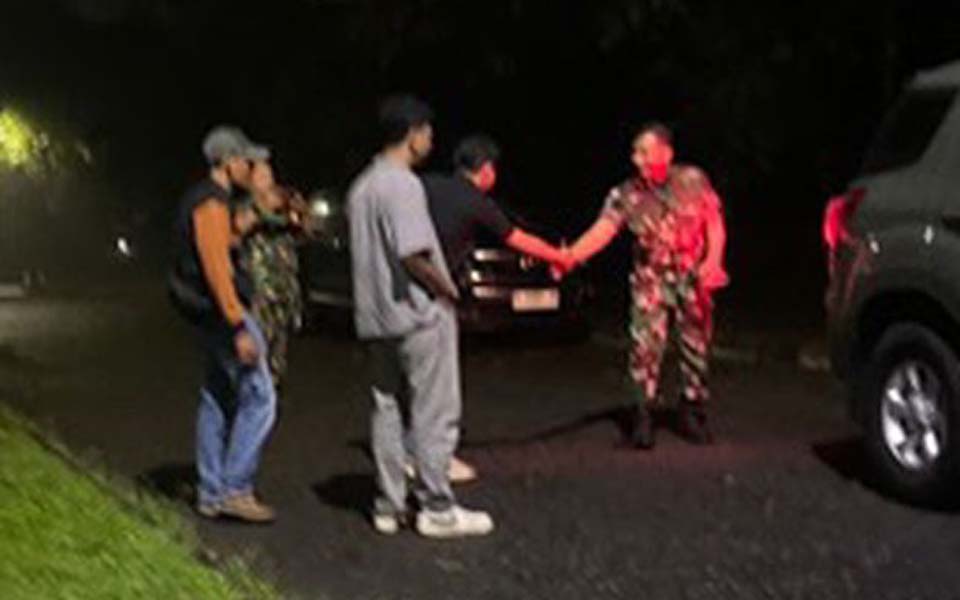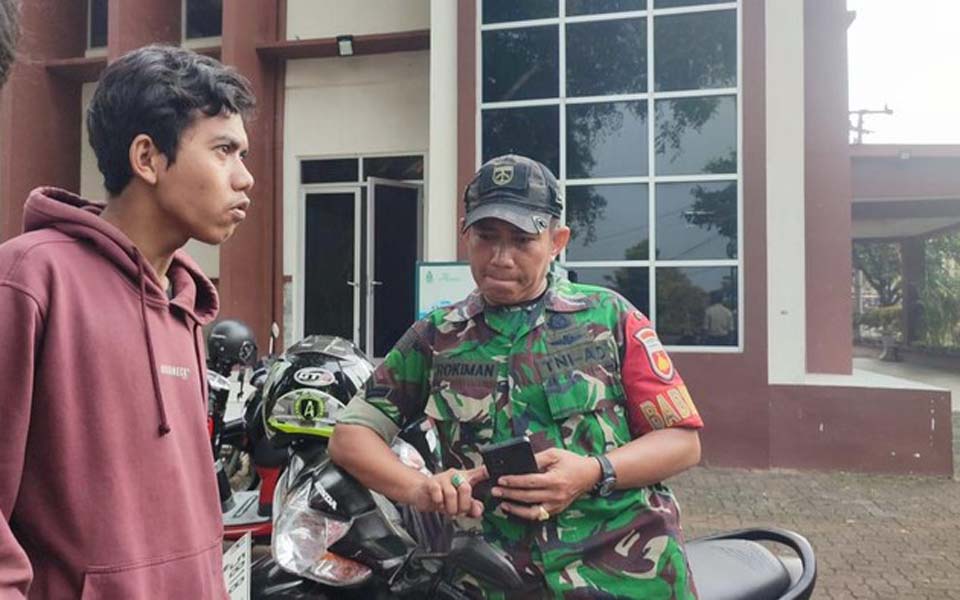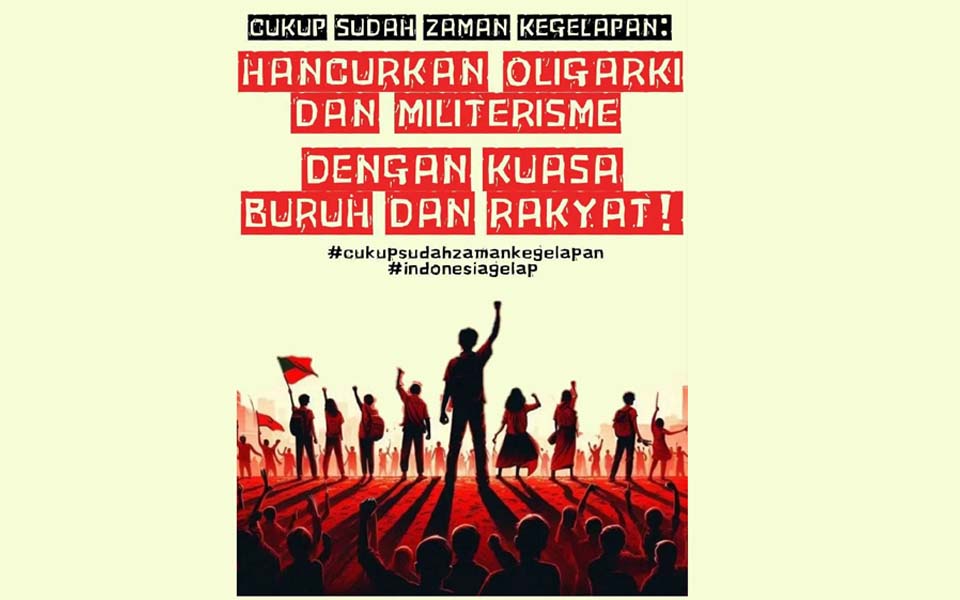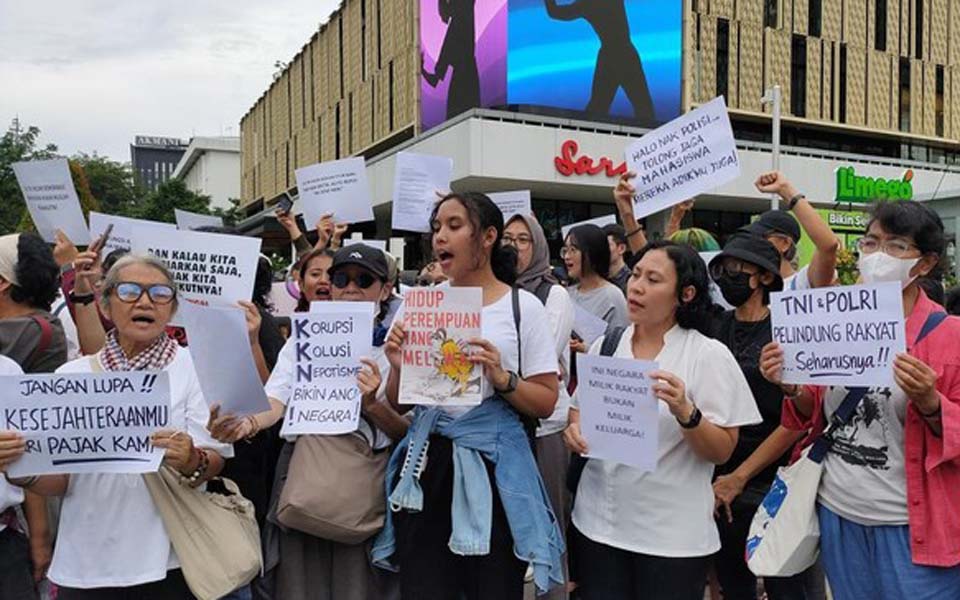A Memorandum of Understanding (MoU) between the Indonesian military (TNI) and police on the involvement of the TNI in police duties such as confronting protests and strikes has been criticised as a step back for reformasi.
“This represents a step back for freedom and democracy”, Amnesty International Indonesia director Usman Hamid told BBC Indonesia on Friday February 2.
According to Usman, the involvement of the TNI in handling internal security is not in accordance with the mandate of reformasi – the reform process that began in 1998. “There are signs of a reverse in the direction of Indonesian democracy “, said Usman.
TNI spokesperson Major General Sabrar Fadhilah acknowledged the existence of the MoU on the TNI’s role in assisting the police in civilian affairs. “Essentially it is for cooperation to provide assistance to the police”, Fadhilah told BBC Indonesia on Friday February 2.
What is the MoU exactly?
The MoU, among other things, regulates how the TNI can assist the police in, for example, confronting protests, labour strikes, mass riots, social conflicts and securing social activities and the government.
The MoU, which was signed by Indonesian Police Chief General Tito Karnavian and TNI Air Chief Marshal Hadi Tjahjanto, states that all costs related to this assistance will be borne by the police.
The MoU, which was signed on January 23 and is valid for five years, can be renewed with the agreement of both parties. “[This MoU] will end if there is a law/government regulation or presidential decree that regulates TNI assistance to the police”, the MoU states.
Fadhilah said that the issues regulated by the MoU are in accordance with existing legislation. This includes, among others, Law Number 2/2002 on the National Police, Law Number 34/2004 on the TNI, Law Number 7/2012 on Handling Social Conflicts and Law Number 39/1999 on Human Rights.
Article 7 of Law Number 34/2004 on the TNI states that in carrying out its duties, the TNI can assist the police in maintaining security and public order. Law Number 7/2012 meanwhile regulates the TNI’s role in handling social conflicts. Article 33 states that a request for TNI assistance must still be submitted to the government.
The new MoU, continued Fadhilah, is an extension of a previous MoU that was signed in 2013. “Cooperation and assistance has continued to this day”, he said.
According to Fadhilah, the TNI will stand behind the police in carrying out security functions. “We will continue (the approach of) prioritising the police’s role”, he said.
Workers reject TNI involvement
One of the points that has been highlighted in the MoU is the TNI’s involvement in dealing with strikes, given that going on strike is a workers’ right and problems related to industrial relations “do not need to involve the security forces”.
“Clearly we oppose this”, said Simon, a labour activist from the Indonesian Trade Union Alliance Congress (KASBI), because, “Their presence is quite intimidating”.
The MoU, continued Simon, can be used as grounds for the TNI to become involved in labour conflicts. “It will legitimise repressive actions against workers”, he said.
According to Simon, even without the MoU, every time workers strike the TNI is always present. The military’s justification for this is because it is within their area of operations.
A similar view was expressed by University of Indonesia labour and politics observer Irwansyah. “Demonstrations and strikes are regulated under law. There’s no need for the involvement of the military which should not be made available for such needs”, he said.
According to Irwansyah, the involvement of the military, particularly in dealing with strikes, has the potential to trigger violence and intimidation as occurred during the New Order era of former president Suharto. “This will do irreparable damage to the spirit of reformasi”, said the former 1998 activist.
Irwansyah highlighted the many cases of violence involving the military that have still not been fully resolved. “For example the Semanggi I and 2 [shooting of student demonstrators in 1998 and 1999] and the murder of labour activist Marsinah [in 1993]”, he said.
Usman Hamid also cited similar examples of violence such the case of La Gode in North Maluku Utara in October last year who was found dead after being detained and tortured at a military post in Banau.
“Every time there is institutional or professional misconduct in the military there is never any real accountability”, said Usman.
He added that the clearest example is in West Papua where “unprofessional” security personnel handle peaceful protests. “Which result in shootings or killings”, said Usman.
Amnesty International believes that the MoU will have a negative impact on the quality of democracy, freedom and human rights.
According to Usman, the involvement of the military in security is a consequence of security institutions’ low level of accountability. “And this is a logical consequence of the civilian authorities who sideline security institutions’ accountability”, he said.
[Translated by James Balowski. The original title of the article was MoU TNI dan Polri: Keterlibatan TNI untuk tangani unjuk rasa dan mogok diprotes.]






